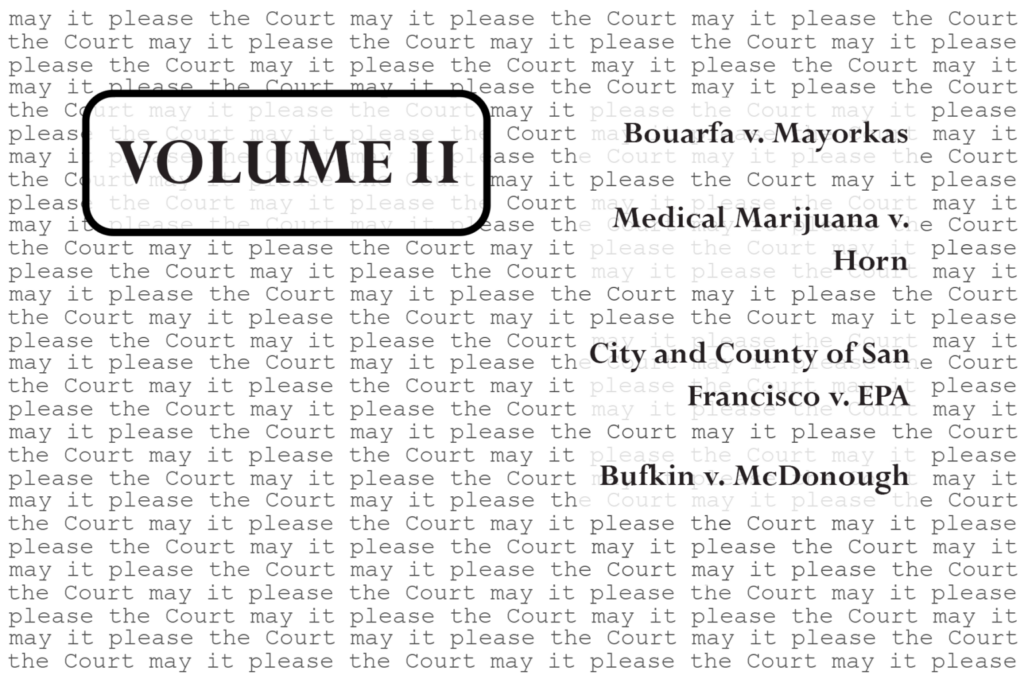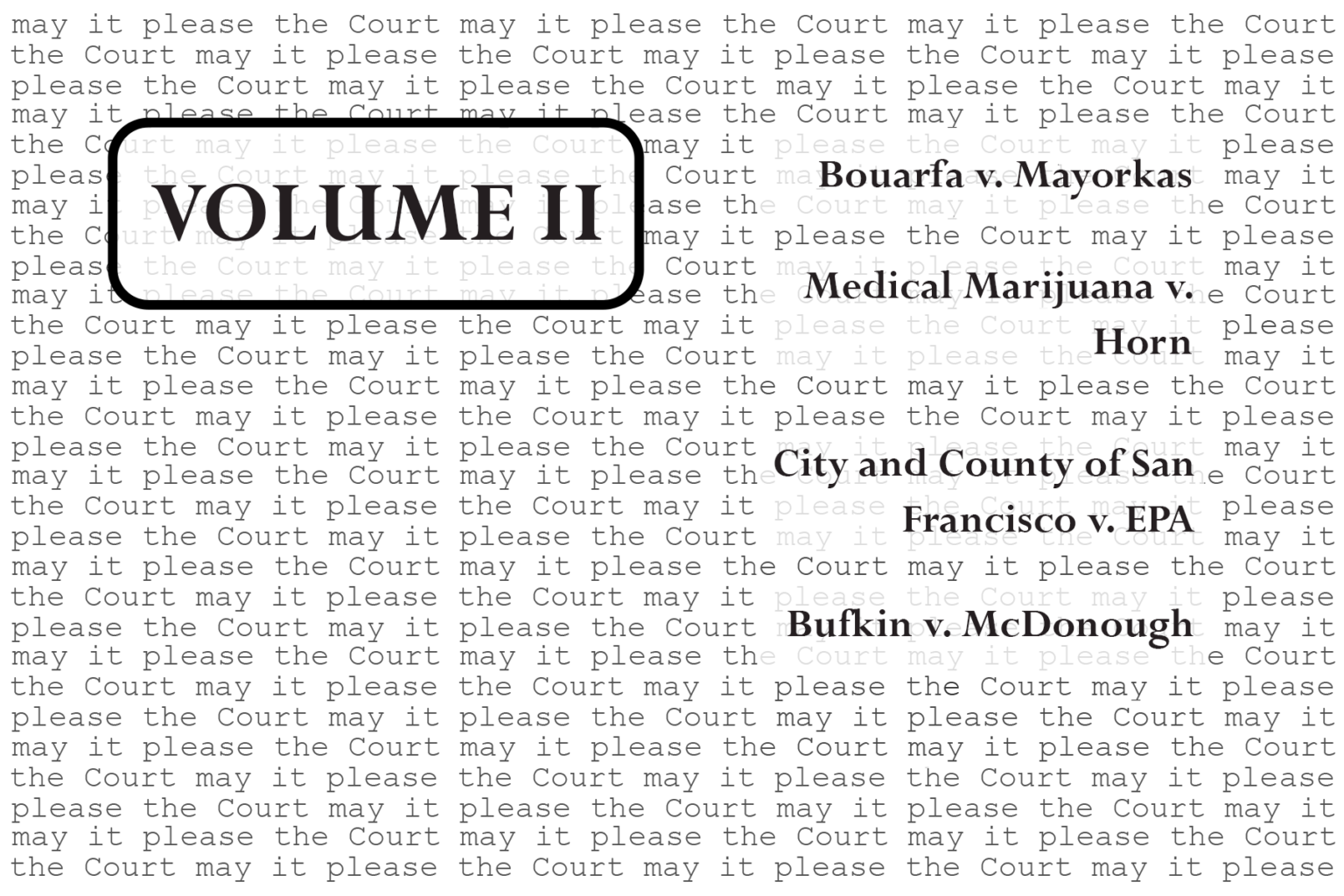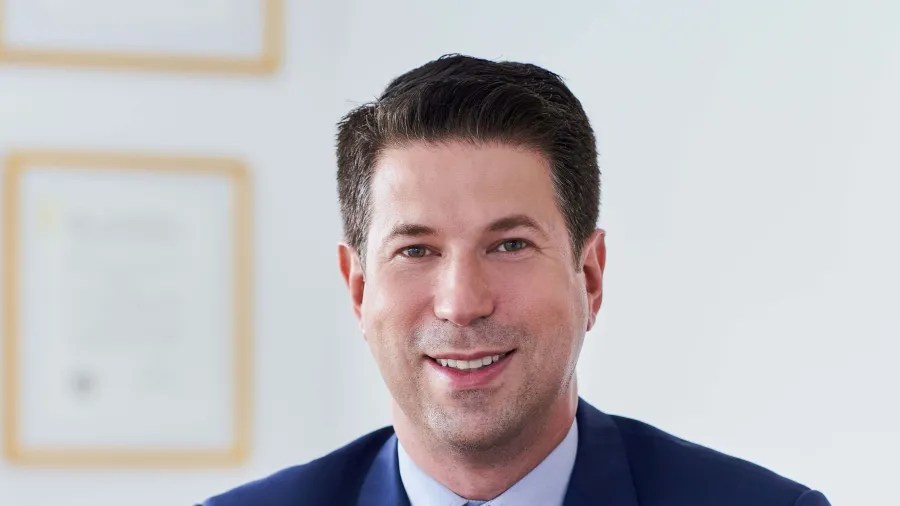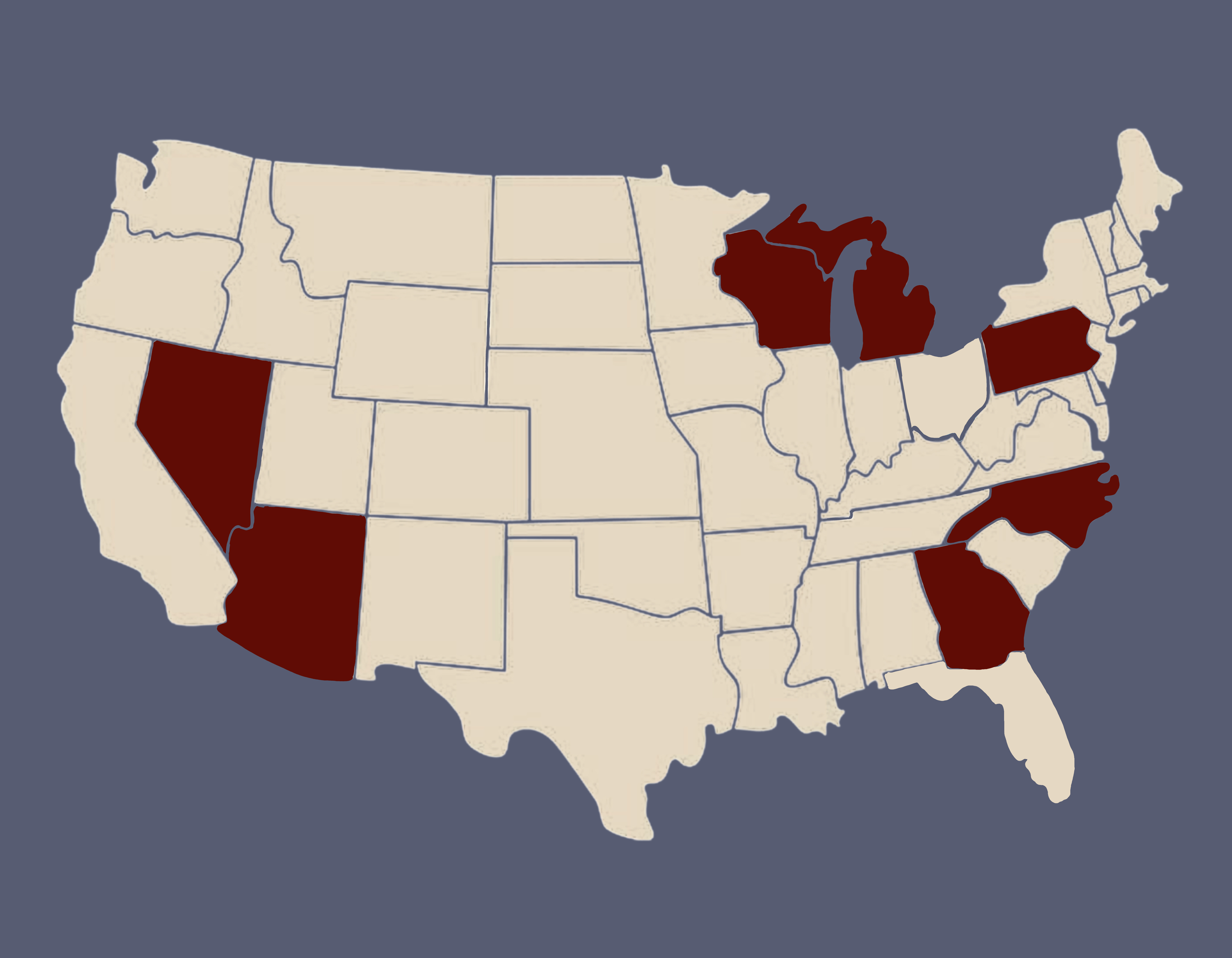RICO, the EPA, and a quiet week for the merits docket

Photo Credit: Sarah Mester
By Sarah Mester
November 4 marks the start of the November Sitting, during which the Court will hear four cases the week of November 4 and three cases the week of November 11—a relatively light schedule. The Court will be closed on Monday November 11 for Veterans Day, so there are only two days of oral argument that week. This edition of May it Please the Court will cover the second week of the October Sitting—the first week of the November Sitting will be covered next edition. Volume I, which covered the first week of the October Sitting, can be found here.
Case Summaries
Bouarfa v. Mayorkas (Arg: 10.15.2024) Oyez SCOTUS Blog
About: Jurisdiction
Question: If a visa is revoked at the discretion of immigration officials, but the reason for the revocation was based on nondiscretionary (i.e. non-negotiable) criteria that would have prevented the initial approval of the visa, can the visa holder obtain judicial review?
Explanation: Immigration officials can revoke their approval of a visa “for good and sufficient cause” at any time and such action is considered discretionary and not subject to judicial review (an explanation for why that is can be found here). However, while Bouarfa’s husband’s visa was ultimately revoked under discretionary review, the reason for the revocation was nondiscretionary. The Court is being asked whether a visa revoked via discretionary action, but for a nondiscretionary reason, can be subject to judicial review despite discretionary action not being reviewable.
Medical Marijuana v. Horn (Arg: 10.15.2024) Oyez SCOTUS Blog
About: The Racketeer Influenced and Corrupt Organizations Act (RICO)
Question: Are economic harms resulting from personal injuries considered injuries to “business or property” under the Racketeer Influenced and Corrupt Organizations Act?
Explanation: RICO permits a private individual “damaged in his business or property” by a “racketeer” to file a civil suit. Horn alleges that his ingestion of THC was not a purely personal injury, which is not covered by RICO, but an injury to his business due to him losing his employment. The Court is being asked whether a personal injury should be considered damage to “business or property” within the context of RICO. It should be noted that RICO has been the subject of more than thirty Supreme Court cases since 1981.
City and County of San Francisco v. EPA (Arg: 10.16.2024) Oyez SCOTUS Blog
About: Federal Agency Power
Question: Does the Clean Water Act allow the Environmental Protection Agency (EPA) to impose National Pollutant Discharge Elimination System permits that subject permit-holders to enforcement for violating water quality standards without identifying specific limits to which their discharges must conform?
Explanation: Instead of imposing specific limits, the EPA instead imposed broad limitations—prohibiting discharges that “cause or contribute to a violation of any applicable water quality standard” (SCOTUS Blog) and barring the creation of “pollution, contamination, or nuisance” as defined by a provision of state law. The Court is being asked whether those limitations are too broad and could leave the city vulnerable to unpredictable fines.
Bufkin v. McDonough (Arg: 10.16.2024) Oyez SCOTUS Blog
About: Standard of Review
Question: Did the U.S. Court of Appeals for Veterans Claims properly apply the benefit-of-the-doubt rule (38 U.S.C. § 5107(b)) as required by a different section of the same law (38 U.S.C. § 7261(b)(1))?
Explanation: The “benefit of the doubt” rule is a rule requiring that the veteran, rather than the government, should receive the benefit of the doubt on close issues involving veteran benefits. The Court is being asked whether the U.S. Court of Appeals for Veterans Claims, when applying this mandatory rule, only has to look for clear error by the Veterans Administration or must do a more thorough review.
Oral Argument Excerpts
I mentioned that RICO has been on the docket of the Court before—actually quite a few times. During the argument for Medical Marijuana v. Horn Alito commented, after discussing how the Court has previously approached RICO cases, that “RICO is a — RICO is a tough thing to deal with” (58:34). I might be imagining it, but I sense some discontent with Congress’s statute writing ability.
After a lawyer has reached the end of their allotted time for argument, Chief Justice Roberts will call on every Justice in order of seniority to ask final questions. And, very occasionally, he will get the order wrong, as in this excerpt from Bouarfa v. Mayorkas (44:50):
Roberts: “Thank you, counsel. Justice Thomas? Justice Alito, anything further? No? Justice Jackson — oh, Justice Barrett? Thank you”
Jackson is the newest member of the Count, having been nominated by Biden, while Barrett is the second newest member as the last of Trump’s three nominees from his first term. Meaning that Roberts nearly skipped Barrett—oops!
Meanwhile, San Francisco’s advocate Tara Steeley in City and County of San Francisco v. EPA had the following tense exchange with Sotomayor when discussing the timeline for modifying the city’s EPA permit (34:16):
Sotomayor: “[It will take] Months and years.”
Steeley: “I’m sorry?”
Sotomayor: “Months and years.”
Steeley: “I mean, it can take as little as six weeks to three months –”
Sotomayor: “Only if you’re cooperating. All right.”
Steeley: “I’m not sure –”
Sotomayor: “Thank you. That’s fine, counsel.”
Listening to this case, I got the sense that San Francisco did not have the best reputation with the EPA. The EPA advocate, when asked who was preventing the EPA from getting the information they needed for the permit, pointed out San Francisco as the problem (1:03:53):
Alito: “…But is there anything that prevented you from obtaining whatever information you thought you needed?
Mr. Liu: “Yes, San Francisco…”
Tsk, Tsk, San Francisco, you should do better. I would not have wanted to be Tara Steeley during that argument.
Sarah Mester is a senior in the College studying Political Science and Classics from San Francisco, CA. She’s the Assistant News Editor for The Pennsylvania Post. Her email is smester@sas.upenn.edu.




